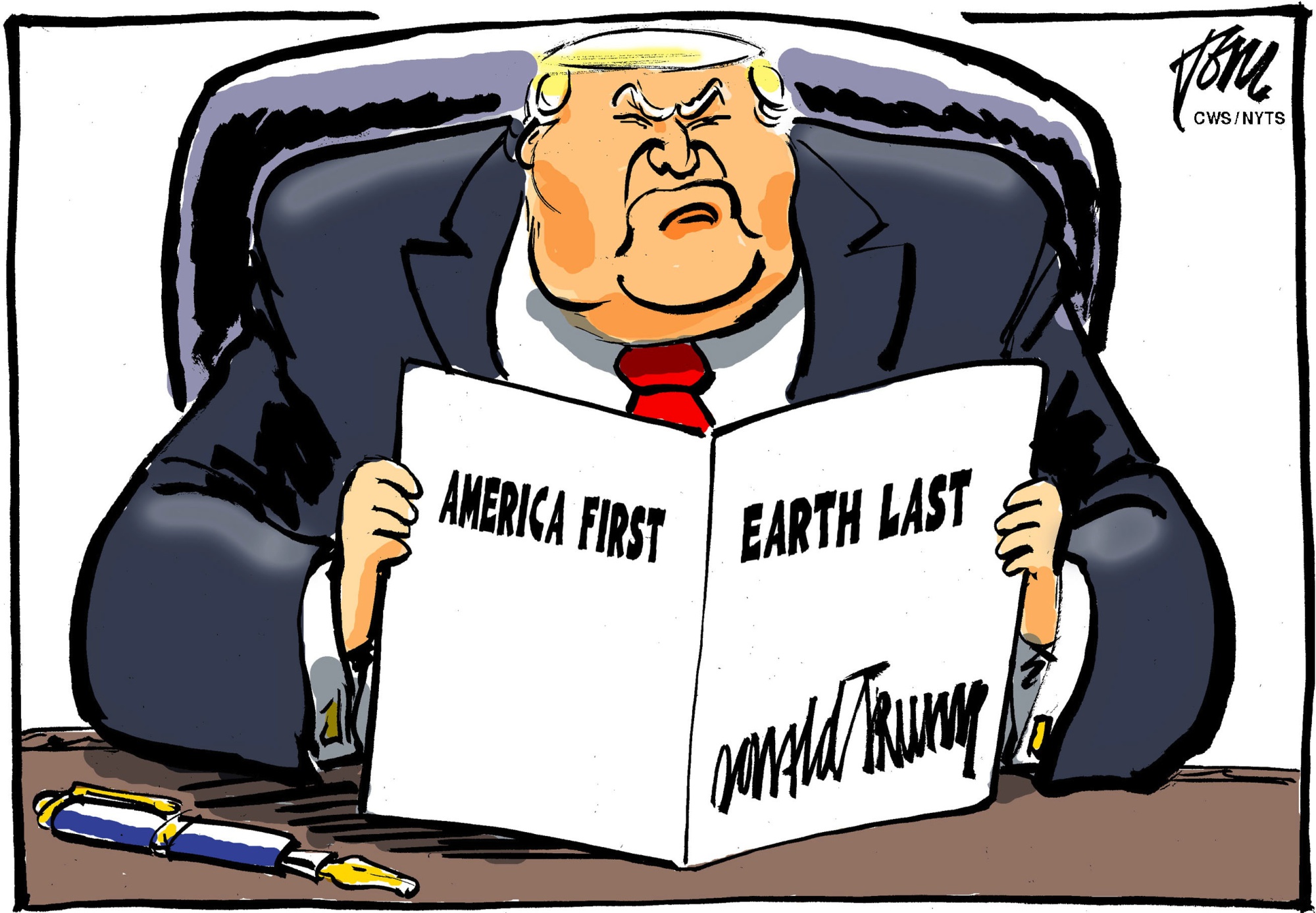At the start of 2016, the United States was well positioned to lead the global fight against climate change. As the chair of the Group of 20 for 2017, German Chancellor Angela Merkel had been counting on the U.S. to help drive a deep transformation in the global economy. And even after Donald Trump won the U.S. presidential election, Merkel gave him the benefit of the doubt, hoping against hope that the U.S. might still play a leading role in reducing global greenhouse gas emissions.
But at Merkel and Trump's first in-person meeting, no substantive statements were issued, and their body language made the prospect of future dialogue appear dim. Trump's slogan "America first" seems to mean "America alone."
By reversing his predecessor's policies to reduce carbon dioxide emissions, Trump is rolling back the new model of cooperative global governance embodied in the 2015 Paris climate agreement. The countries that signed on to that accord committed themselves to sharing the risks and benefits of a global economic and technological transformation.

















With your current subscription plan you can comment on stories. However, before writing your first comment, please create a display name in the Profile section of your subscriber account page.